News
UK schools find the Costa Brava very fishy
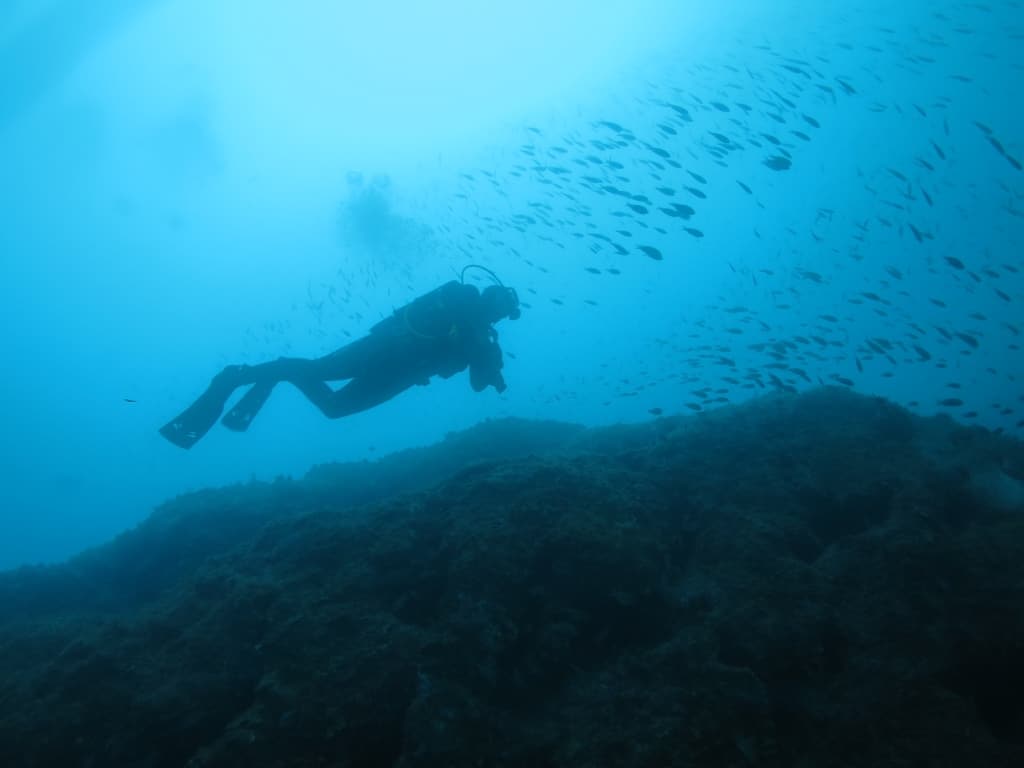
Oyster Diving’s Mark Murphy shares his experiences on a dive trip with a difference, accompanying a group of school teachers exploring Spain’s Costa Brava under and above water…
While most people were putting their feet up over the Easter holidays, myself and a group of teachers from Wellington College, Ratcliffe College, Rye St. Antony, BEDES, Headington College, TASIS, Warden Park and Bradfield College headed to Spain to explore the depths of Costa Brava. The trip was organised by Oyster Diving, the UK based PADI 5 Star scuba diving and travel centre that specialises in courses and holidays for schools and colleges.
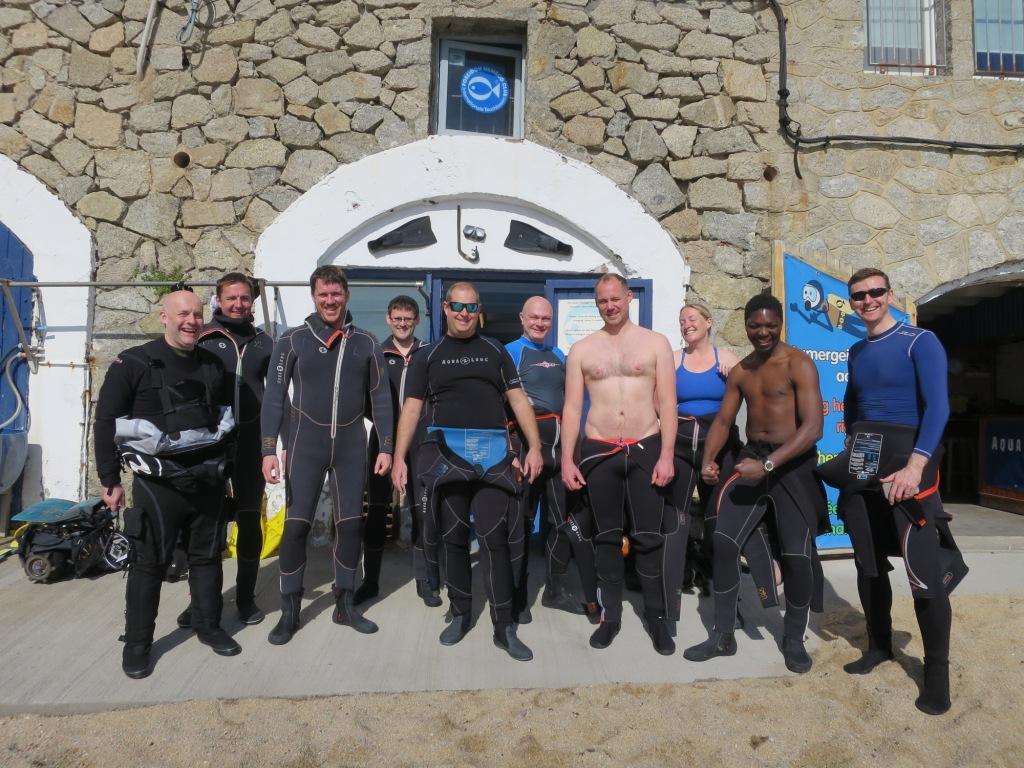
Funded by the Costa Brava Tourist Board, we spent 4 days being shown the delights of Spain’s premier underwater locations, as well as many fascinating land-based activities.
With a mixture of new and experienced divers we began our journey with a night’s stay in Hotel Cala Joncols, hidden at the Northern end of the Costa Brava, close to the French border.
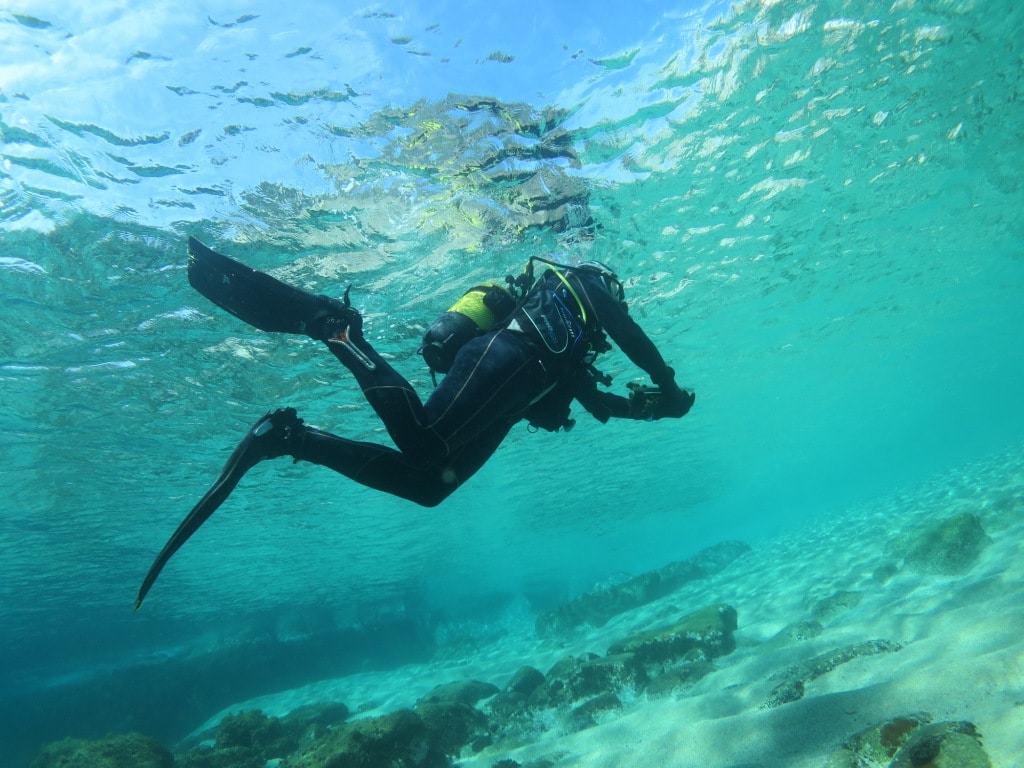
Hotel Cala Joncols is a relaxed retreat located at the tip of a national park, 20 minutes from the nearest village. Run by Michael and Alexis, this idyllic resort is small and family-owned and provides a genuine Spanish cultural experience. Michael and Alexis couldn’t do more to make your stay more personal and enjoyable. From the décor that compliments the landscape of the vines, pine trees and olive trees, to the amazing food prepared by the resident chef, this is a taste of true Spain.
On our arrival we were greeted with a tour of the estate and endless amounts of Spanish tapas that included fresh fish, shellfish, local meats and paella. The resort is becoming famous amongst wine connoisseurs for aging wines from the area 27m under the sea, creating a unique taste.
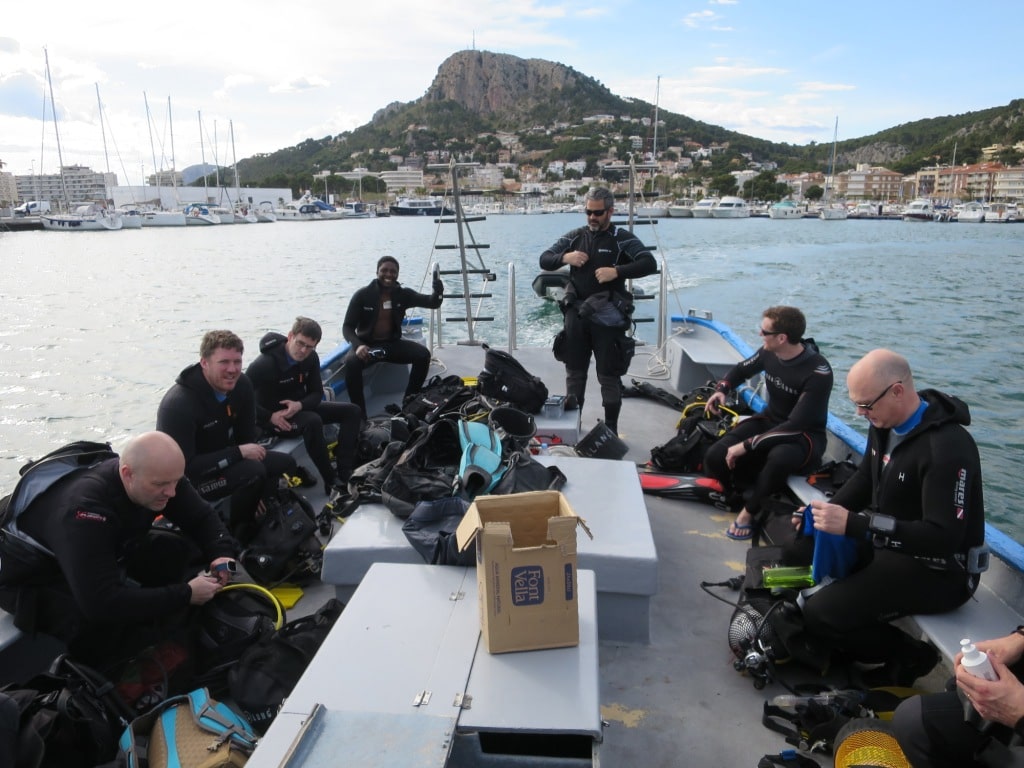
The following morning, we met Jan, the owner of the dive centre attached to the hotel. Jan has been diving here for 16 years, so imparted much of his local knowledge upon us. He and his team took great care of us ensuring that everyone had kit that fitted perfectly.
After setting up our kit, we boarded the boat from the beach and 10 minutes later we were entered the clear blue Mediterranean waters close to a small rocky outcrop. Underwater there was plenty to see including Octopus, Wrasse and Groupers. The typography was stunning with ledges and nooks and crannies that many species of marine life call home.
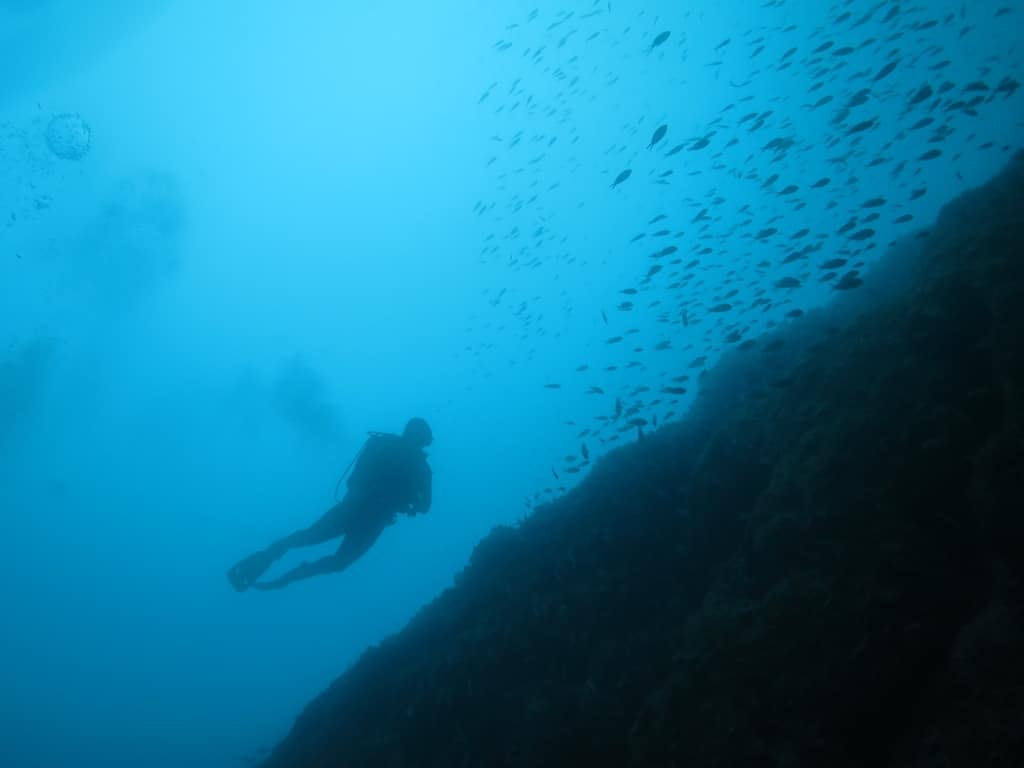
The more experienced divers, who have travelled to many exotic places in the past, were pleasantly surprised by the variety and quantity of the local marine life, often not associated with diving in other parts of the Mediterranean.
Off the beach there also provides diving opportunities and offers a great place for students to complete their dive courses in the confines of a large, protected bay.
After the dive we headed by mini bus, via a quick tour to the Salvador Dale museum, to the next destination, Calella de Palafrugell, approximately 1 hour from Girona. Calella is a small fishing village that is picture-postcard-perfect. The area boasts small, white fronted houses nestled around a golden sandy beach, the Pyrenees mountains providing the stunning backdrop. Calella is not to be confused with the Calella close to Barcelona that I visited on a ‘young persons holiday’ in 1987.
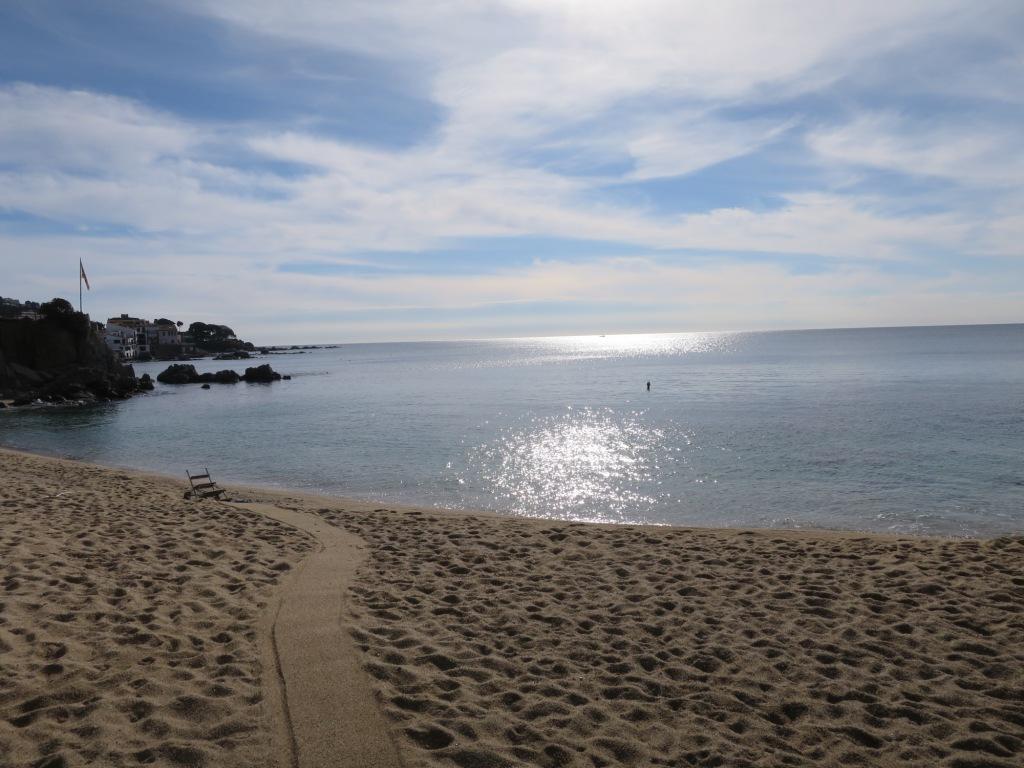
The next morning, we were greeted by the friendly and experienced instructors Angel and Melissa from Poseidon, the local dive centre. This charming local PADI centre is located right on the beach. You can board their dive boat straight off the beach to explore the local wrecks and reefs, or simply do what we did and stroll straight off the sand, which was greeted by some bemused looks from the tourists topping up their tans.

The shallow clear waters are perfect for students to practice their skills and complete their training courses. Swimming out a little further, the local marine life was lit up by the bright, sunny sky against the contrast of sea grass, rocky outcrops and blue sea. Scorpion fish, large schools of colourful fish varieties patrolled the small rocky pinnacles looking for their next meal. A few teachers managed to catch a glimpse of an Octopus and Dr. O’Loughlin from Wellington College conducted his own reef clean-up by collecting the few bits of litter and debris that lay on the seabed.
During the summer, the dive centre offers a barbecue on the beach. It’s a great opportunity to look up at the starlit sky and swap stories about the days diving.
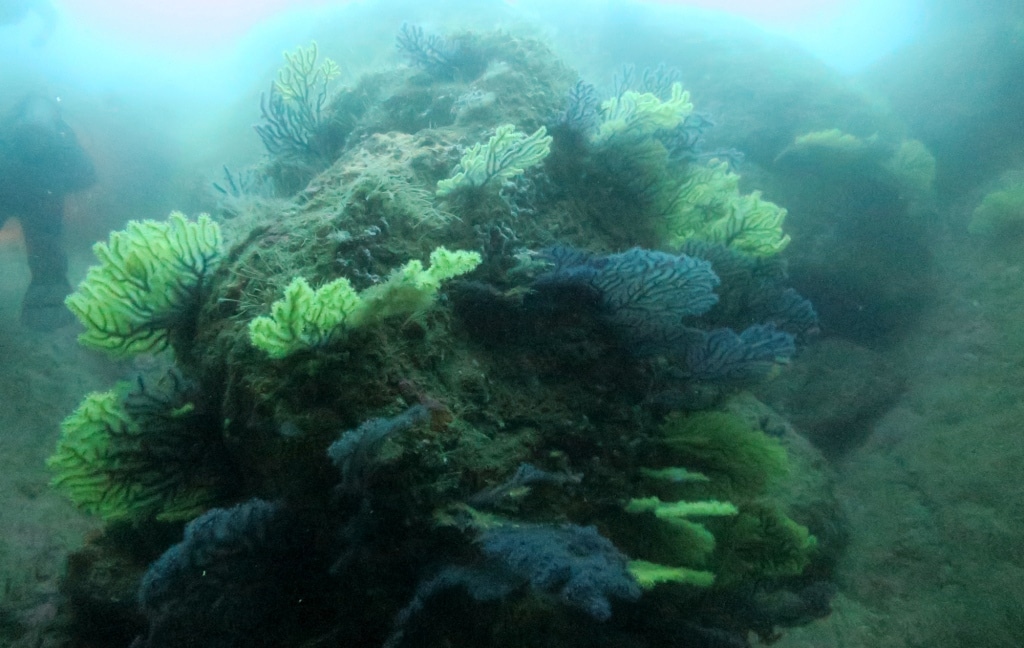
After hanging our kit up to dry we were treated to a 4-course lunch at hotel Garbi which is a 5-minute walk from the dive centre. Hotel Garbi is an ideal place to put up students as it offers affordability, practicality, comfort and charming grounds. We inspected the clean and ample-sized rooms, had our photos taken on the hotel balcony that overlooks the village and ocean, and checked out the other facilities to ensure that school children would be kept entertained when they weren’t in the water. Table tennis, a heated swimming pool, pool table and breath-taking coastal walks were all things schools could endure!
After lunch we hopped back on the bus and went for a late afternoon dive on the Medes Islands. These islands are famous amongst the French, Italian and Spanish divers, but as yet haven’t been discovered by the masses of UK divers. The island became famous after it became the first of 20 protected national marine reserves. In the 15 years since it was established it has allowed the marine life to thrive.
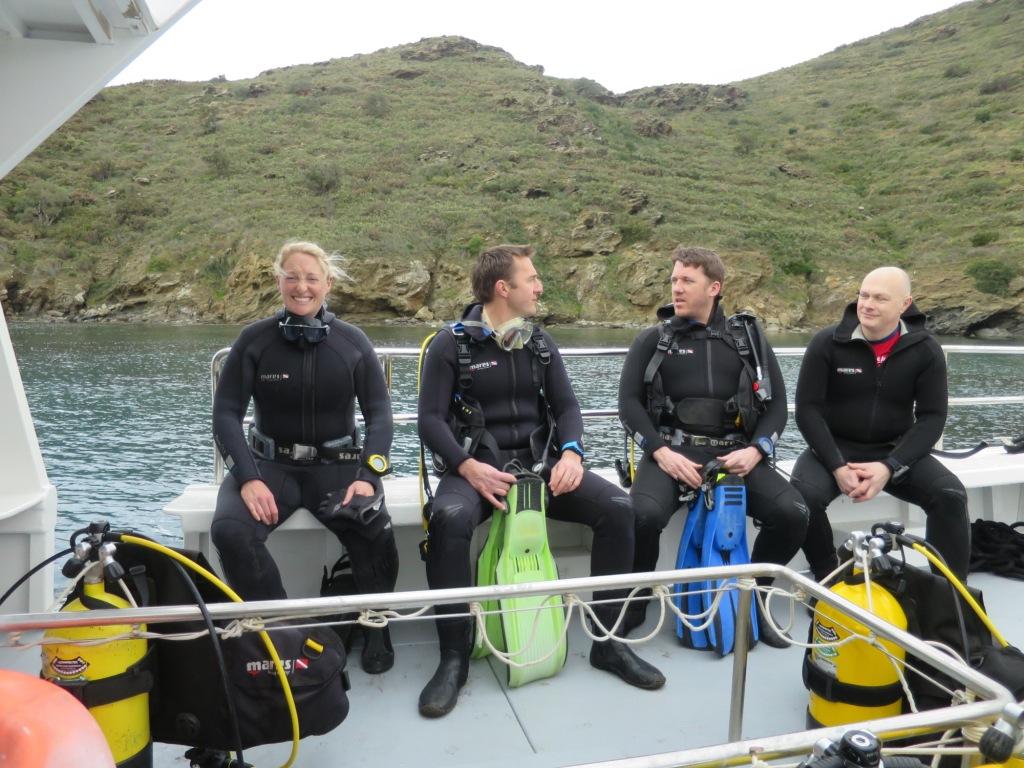
We descended into the blue, went through a large tunnel that had plenty of ambient light and followed the reef wall. This dive site is for more experienced divers but is one of the best dive sites to be found in the Med as it offers big schools of fish, huge groupers and Octopus. They are all tolerant of divers and their cameras, and if you come between May and June there is a really good chance of seeing sunfish.
After the dive, our VIP status continued as we were introduced the Mayor and met some of the other local friendly dive centre owners. They shared the delights of the area and how schools from France and Spain make this such an appealing trip for their children, returning year after year.
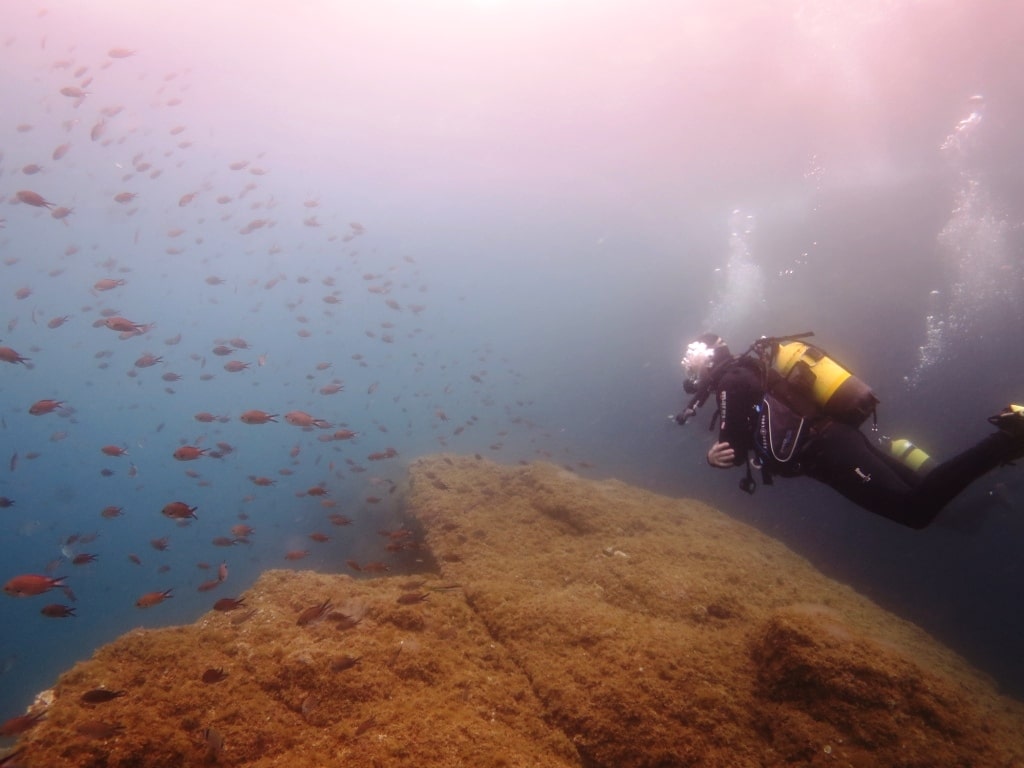
On our final day we were treated to a tour of Girona, an ancient City steeped in a fascinating history. For Game of Thrones fans, this was a chance to see the backdrop for some of the most iconic scenes.
The Costa Brava tourist board couldn’t have been better hosts and really made us feel very welcome. Oyster Diving have already arranged to take Ratcliffe College and Warden Park back to the Costa Brava in October half-term and next Summer. The students will finish their PADI open water theory and pool skills in the UK and then complete their certification in Spain. This allows for a few extra days of exploring the reefs with their new life-long diving qualification.

Oyster Diving are looking forward to taking another group of school teachers to the Costa Brava next year to show off the delights and benefits to schools and their students. If you are interested, then you can get in touch with Oyster Diving at info@oysterdiving.com, or for general information about scuba diving courses and trips visit their website www.oysterdiving.com.
Gear News
Introducing the TR-80, IR-50 and CS-30 Regulators from DYNAMICNORD

Whether you are a beginner or a professional diver – with the three new main regulators from DYNAMICNORD, everyone will find their favourite regulator. They all look super stylish.
Excellent performance with the TR-80
Quality and performance are the be-all and end-all for regulators. It is not for nothing that the TR stands for Tec Reg. The innovative design of the TR-80 guarantees absolute reliability – even in ice-cold waters.

Perfect breathing effort at 0.8 J/l / certified for diving in waters below 10 degrees / structural design made of solid brass for best cold protection / membrane-compensated design with dry seal of the first stage / reduced exhalation effort thanks to optimized exhalation membrane and bubble deflector / adjustable Venturi (dive/predive) and adjustment knob for individual inhalation comfort / innovative design of the front cover prevents free-flow in strong currents or when diving with scooters / design made of sandblasted brass, matt chrome finish / 2 HP and 4 LP outlets / mouthpiece made of high-quality, anti-allergic silicone for maximum comfort.


Amazing underwater adventures with the IR-50
The IR-50 is the top regulator for advanced and experienced divers. Natural breathing is the essence of this regulator.

Ideal breathing effort at 0.8 J/l /certified for diving in waters below 10 degrees / compensated membrane / adjustable venturi (dive/predive) and adjustment knob for individual inhalation comfort/ outlet valve and deflector for minimum exhalation effort and reduction of bubbles on the face / design made of sandblasted brass, matt chrome finish / 2 HP and 4 NP outlets / mouthpiece made of high-quality, anti-allergic silicone for maximum comfort.


The Workhorse – our CS-30
For diving centres and diving beginners – the workhorse stands for strong construction, reliability and robustness. Perfect for your training.

Optimal breathing effort at 0.8 J/l /recommended for diving in waters above 10 degrees / non-compensated piston / adjustable venturi (dive/predive) / outlet valve and deflector for minimum exhalation effort and reduction of bubbles on the face / design made of sandblasted brass, matt chrome finish / 1 HP and 3 NP outlets / mouthpiece made of high-quality, anti-allergic silicone for maximum comfort.


Octopus OP-30
The OP-30 is the ideal addition to all DYNAMICNORD regulators. It is identical in construction to the CS-30.

The TR-80, IR-50, CS-30 (DIN & INT) regulators and the Octopus OP-30 are available from DYNAMICNORD dealers and in the online store.
DYNAMICNORD – Your Outdoor Companion.
Marine Life & Conservation
Paul Watson Released as Denmark Blocks Japan’s Extradition Bid

Renowned anti-whaling activist Paul Watson has been released from custody in Greenland after spending five months in detention. Denmark’s Justice Ministry rejected Japan’s request for his extradition, citing insufficient guarantees that his time already served in custody would be credited against any potential sentence.
The 74-year-old Canadian-American was arrested on July 21 in Nuuk, Greenland’s capital, when his ship docked to refuel. His arrest was based on a 2012 Japanese warrant related to a 2010 encounter in Antarctic waters. Japan alleged Watson obstructed operations and caused damage to a whaling research ship during efforts to disrupt illegal whaling. Watson has consistently denied these claims, maintaining his commitment to marine conservation.
Denmark, which oversees extradition matters for Greenland, concluded that while the legal conditions for extradition were met, the lack of assurances from Japan regarding time-served credit made extradition untenable.
In a video shared by his foundation, Watson expressed gratitude and relief, saying, “After five months, it’s good to be out… and good to know they’re not sending me to Japan.” He added that the most difficult part of his time in custody was being separated from his two young sons.
Watson is a pioneering figure in marine conservation, known for founding the Captain Paul Watson Foundation in 2022 after decades of activism with the Sea Shepherd Conservation Society. His bold efforts to defend marine life have earned him widespread support, including from celebrities and conservationists. His work has also been featured in the acclaimed reality TV series Whale Wars.
Watson’s lawyer, Jonas Christoffersen, praised the decision, stating, “We are happy and relieved that Paul Watson is now free.” He added that Watson is eager to reunite with his family and continue his vital work.
The arrest occurred while Watson’s vessel, the M/Y John Paul DeJoria, was en route to the North Pacific with a team of 26 volunteers to intercept a Japanese whaling ship. His foundation described the arrest as politically motivated and emphasized that Watson’s actions were focused on ending illegal whaling practices.
Japan resumed commercial whaling in 2019 after leaving the International Whaling Commission, asserting that whale meat is a cultural tradition. Conservationists, however, continue to challenge these practices, highlighting their impact on marine ecosystems.
Despite the challenges, Watson remains steadfast in his mission to protect marine life and bring attention to whaling practices. His dedication to ocean conservation has made him a globally respected advocate for the environment.
-

 News2 months ago
News2 months agoIconic SS United States to become the World’s Largest Artificial Reef
-

 News3 months ago
News3 months agoBook Review – 52 Assignments: Underwater Photography
-

 Gear News3 months ago
Gear News3 months agoDYNAMICNORD – New German diving brand enters the British market
-

 News3 months ago
News3 months agoExploring Cenote El Pit: A Diver’s Dream
-

 Gear News3 months ago
Gear News3 months agoTry BARE drysuits (and maybe even win one!) this Friday with Sea & Sea at North West Dive Fest
-

 Marine Life & Conservation3 months ago
Marine Life & Conservation3 months agoBook Review: Coral Triangle Cameos
-

 Blogs2 months ago
Blogs2 months agoDive the Egyptian Red Sea this Autumn with Regaldive
-

 News3 months ago
News3 months ago2024 Ocean Art Underwater Photo Competition Announced













